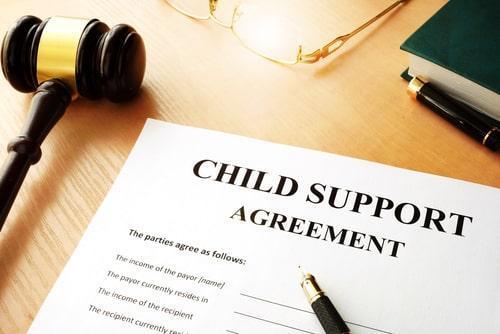Recent Blog Posts
Can Limited Scope Representation Help Me in My Illinois Divorce?
 Although some people getting divorced in Illinois want to hire an attorney who will represent them from the moment the divorce begins to the moment the final divorce decree is handed down, this is neither financially nor practically feasible for everyone. If you anticipate a simple divorce, have budgetary restraints, or simply have the desire to handle certain issues yourself, you may have another option: Limited scope representation.
Although some people getting divorced in Illinois want to hire an attorney who will represent them from the moment the divorce begins to the moment the final divorce decree is handed down, this is neither financially nor practically feasible for everyone. If you anticipate a simple divorce, have budgetary restraints, or simply have the desire to handle certain issues yourself, you may have another option: Limited scope representation.
Illinois allows attorneys to limit the scope of their representation to clients if there are reasonable circumstances and the client understands and gives their consent. Attorneys can coach divorcees who wish to represent themselves, prepare evidence, and can even appear in court if necessary - but only if the client seeks that representation as part of their legal services. If you are considering getting divorced in Illinois and doubt that full-scale legal representation is right for you, read on.
What is a "Survivorship Period"?
 Pairs of people who are each other’s next of kin, such as a married couple, often leave everything to each other in their estate plans. The idea is that when the first passes away, the second will inherit and enjoy the estate until she too passes away. Sadly, sometimes a couple passes away at the same time, for example, in a car accident. However, it is unlikely that both people died at exactly the same moment. Odds are, one person survived longer than the other - maybe by a few seconds, maybe by a few weeks.
Pairs of people who are each other’s next of kin, such as a married couple, often leave everything to each other in their estate plans. The idea is that when the first passes away, the second will inherit and enjoy the estate until she too passes away. Sadly, sometimes a couple passes away at the same time, for example, in a car accident. However, it is unlikely that both people died at exactly the same moment. Odds are, one person survived longer than the other - maybe by a few seconds, maybe by a few weeks.
The problem for estate administrators is sorting out who inherits the estate of the person who died first when the person who dies second does not live long enough to claim the first person’s estate. Survivorship period laws simply require that the beneficiary of an estate outlive the decedent by a certain amount of time before benefiting from the estate.
What Problem Does Survivorship Laws Address?
Is Divorce in Illinois Different for Gay Couples?
 Same-sex couples in Illinois get married with high hopes of long-term marital success. Unfortunately, staying married forever is not always possible and divorce becomes necessary. Since same-sex marriage became legal in the United States, the divorce process for same-sex couples is usually the same as ending a marriage for heterosexual couples.
Same-sex couples in Illinois get married with high hopes of long-term marital success. Unfortunately, staying married forever is not always possible and divorce becomes necessary. Since same-sex marriage became legal in the United States, the divorce process for same-sex couples is usually the same as ending a marriage for heterosexual couples.
Regardless of the gender of your spouse, it is important to understand the divorce process so you can make your divorce as smooth and fair as possible.
The Divorce Process in Illinois
Before a couple can get divorced in Illinois, one spouse must be a resident of Illinois. To be a resident, a person must have lived in Illinois for the past 90 days or, if they are an active duty member of the military, must have been stationed there the past 90 days. If children are involved, the children must have been residents for at least six months.
Couples do not need to prove fault to file for divorce. In fact, the only reason for divorce currently allowed by Illinois is "irreconcilable differences." One spouse will file for divorce using a "Petition for the Dissolution of Marriage" in the circuit court where they or the other spouse lives. The petition for divorce must include information about spouses, including where they live and whether they have children. The divorce papers are served to the other spouse and require him or her to respond.
How Does Child Support Work for a Disabled Child over 18?
 Child support payments are a crucial part of ensuring children are raised in a way that meets their physical and emotional needs following a divorce. Generally, child support ends once a child turns 18 or graduates high school or college. For some adults, mental and physical disabilities make it impossible for them to live independent lives. In cases like this, child support payments may be extended so the child can maintain a reasonable standard of living, even as an adult.
Child support payments are a crucial part of ensuring children are raised in a way that meets their physical and emotional needs following a divorce. Generally, child support ends once a child turns 18 or graduates high school or college. For some adults, mental and physical disabilities make it impossible for them to live independent lives. In cases like this, child support payments may be extended so the child can maintain a reasonable standard of living, even as an adult.
If you are parenting a disabled child and want to know more about what this might mean for child support payments, this blog may be helpful to you. Keep in mind that every situation is unique and that a qualified Illinois child support attorney is the best person to give you advice tailored to your situation.
Determining Child Support for Disabled Adult Dependants
In Illinois, child support payments are based on both parents’ incomes and the amount of time each parent spends with their child. This allows parents to split the cost of raising a child in a way that is fair to everyone. Illinois has standard tables it uses to calculate child support payments, but judges have leeway to modify payments if they would be unfair or insufficient.
What is the Difference Between a Will and a Trust?
 While wills and trusts are both ways to pass money and property to your survivors, there are a few major differences. For example, a will has no effect until the testator has passed away, while a trust takes effect immediately. Many strong estate plans use a combination of a will and a trust, or trusts, as a way to make sure everything is covered. It is important to work closely with a qualified estate planning attorney, who can help you determine whether your ideal estate plan includes a will, trust, or both.
While wills and trusts are both ways to pass money and property to your survivors, there are a few major differences. For example, a will has no effect until the testator has passed away, while a trust takes effect immediately. Many strong estate plans use a combination of a will and a trust, or trusts, as a way to make sure everything is covered. It is important to work closely with a qualified estate planning attorney, who can help you determine whether your ideal estate plan includes a will, trust, or both.
What are the Major Differences Between Wills and Trusts?
When you begin working on your estate plan, your attorney will discuss the benefits and drawbacks of both wills and trusts to help you decide what is best for your individual situation. A few key differences are:
-
Timing - A will and trust take effect at different times. A living trust may immediately transfer ownership of any property you place in the trust to the trust. A will, on the other hand, has no legal effect whatsoever until you have passed away.
Will Getting Remarried Affect Child Support Payments?
 Different states have different methods for handling child support when either parent remarries. Illinois uses a method known as the "income shares model" to determine each parent’s financial obligation to their children and whether one parent must pay the other monthly child support. Parents’ incomes and the parenting time they have are the primary factors of child support payment calculations. Because remarriage potentially affects the remarried parent’s overall financial situation, either parent, paying or receiving, could request that child support payments be modified by an Illinois court.
Different states have different methods for handling child support when either parent remarries. Illinois uses a method known as the "income shares model" to determine each parent’s financial obligation to their children and whether one parent must pay the other monthly child support. Parents’ incomes and the parenting time they have are the primary factors of child support payment calculations. Because remarriage potentially affects the remarried parent’s overall financial situation, either parent, paying or receiving, could request that child support payments be modified by an Illinois court.
Remarriage as Grounds For Child Support Modification
If the parent with the majority of parenting time gets remarried, the other parent - the one making the child support payments - may request a modification. Although the spouse of the remarried parent has no legal obligation to help pay for the children, having a second household income reduces the remarried parent’s financial burdens and gives them more disposable income to provide for the children.
How Can Unpaid Child Support be Recovered in Illinois?
 Child support payments are legally binding obligations. Once a divorce order has been finalized, parents cannot simply choose not to pay child support because they feel it is unfair or they cannot afford it, nor can former spouses renegotiate child support payments themselves without the assistance of the court.
Child support payments are legally binding obligations. Once a divorce order has been finalized, parents cannot simply choose not to pay child support because they feel it is unfair or they cannot afford it, nor can former spouses renegotiate child support payments themselves without the assistance of the court.
If a parent fails to make child support payments, in addition to jeopardizing their children’s well-being, they face serious legal consequences. For the parent who should be receiving child support, the lack of resources coupled with the frustration of recovering payments can present a very difficult challenge. Having the help of a qualified attorney can make the process easier and take some of the burden off of your shoulders.
Consequences of Failing to Pay Child Support
Illinois has many strategies to bring non-compliant parents current on their child support payments. If a parent does not pay child support, the other parent can notify the Illinois Division of Child Support Services (DCSS), which then begins monitoring the parent who is responsible for paying child support. Additionally, the Illinois Non-Support Punishment Act provides criminal charges for parents who fail to pay, especially if they do so repeatedly.
Can I Change My Attorney During a Divorce in Illinois?
 Although getting divorced is never easy, the divorce process can quickly become a nightmare if your attorney has become non-responsive or shows up to meetings unprepared. Besides the expense of hiring an unhelpful attorney, you may now be faced with the additional burden of finding and hiring someone else.
Although getting divorced is never easy, the divorce process can quickly become a nightmare if your attorney has become non-responsive or shows up to meetings unprepared. Besides the expense of hiring an unhelpful attorney, you may now be faced with the additional burden of finding and hiring someone else.
But before you decide to change your divorce attorney, it is important to set clear expectations so you know what could change and what will likely stay the same. There are certain things you can expect of your attorney, but some frustrations with the divorce process are natural and will happen no matter how great your lawyer is.
When is Hiring a New Attorney a Good Idea?
Although anyone can generally fire their attorney for any reason or no reason at all, you will be more likely to experience a smooth transition if you take certain steps first. Firing your attorney without having a new attorney already may lead to delays in your case and difficulty getting information transferred to your new lawyer.
When Can an Order for Child Support be Modified?
 Child support is a notoriously difficult area of family law, both because of its emotional impact on the parents who give and receive it, and because of the complexity of the rules involved in determining and modifying the amount.
Child support is a notoriously difficult area of family law, both because of its emotional impact on the parents who give and receive it, and because of the complexity of the rules involved in determining and modifying the amount.
Parents who are ordered to pay child support may feel angry or panicked if they worry they will not be able to make payments and maintain their own quality of life, but once a child support order has been handed down, it is difficult to modify - even if the paying parent feels the order is deeply unfair. If you have been ordered to pay child support and you fear you cannot meet your obligations long-term, do not stop making your payments and consult a qualified Illinois child support attorney.
When is it Possible to Modify an Illinois Child Support Order?
During a couple’s divorce proceedings, judges will often order temporary child support. This can be modified at any time before the divorce decree is finalized. Once a divorce decree is finalized, the child support order can be modified at any time before the child support obligation terminates. There is no mandatory waiting period. That being said, Illinois law requires a “substantial change in circumstances” to have occurred before judges will approve an increase or decrease in child support.
How is Child Support Calculated in Illinois?
 Parents going through a divorce in Illinois may experience some understandable anxiety when faced with the prospect of making or receiving child support payments. The paying parent may worry whether they will be able to afford their payments and sustain their current standard of living. The receiving parent may worry that payments will not get made and that their children will suffer as a result.
Parents going through a divorce in Illinois may experience some understandable anxiety when faced with the prospect of making or receiving child support payments. The paying parent may worry whether they will be able to afford their payments and sustain their current standard of living. The receiving parent may worry that payments will not get made and that their children will suffer as a result.
Illinois courts and judges take many factors into account when establishing a parent’s child support obligations. Understanding how these decisions are made is an important part of planning for your financial future. In this blog, we will explain the methods generally used to determine child support payments. It is important to remember that the exact calculation can be a lengthy and complex process, and the best person to answer your questions is an experienced Illinois family law attorney.












